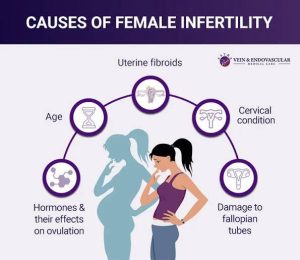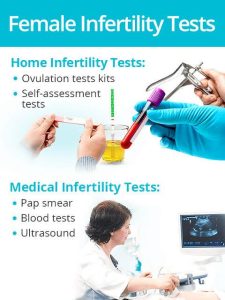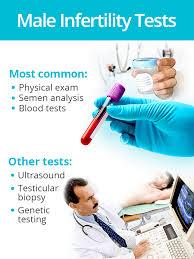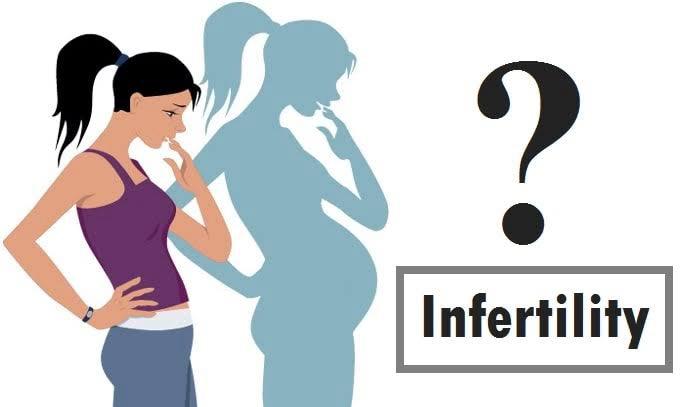Imagine a couple, Sarah and James, who have been together for over five years. They share dreams of building a family, imagining the laughter of children filling their home. Yet, after months of trying, those dreams remain just that—dreams. Each negative pregnancy test feels like a blow, the silence of their home echoing louder than ever. This scenario is all too familiar for many, making the journey of infertility a deeply personal and often isolating experience

“The struggle you’re in today is developing the strength you need for tomorrow.” — Robert Tew
Infertility affects millions of people worldwide, touching hearts and lives in significant ways. For some, it is a journey that lasts a few months, for others, it stretches into years. It’s not just a physical condition; it’s an emotional rollercoaster filled with hope, despair, resilience, and ultimately, immense strength.
Causes of Infertility
1. Hormonal Imbalances
– Polycystic Ovary Syndrome (PCOS)
– Thyroid problems (hyperthyroidism or hypothyroidism)
2. Structural Issues
– Blocked fallopian tubes
– Uterine fibroids or polyps
– Endometriosis

3. Male Factor Infertility
– Low sperm count
– Poor sperm motility
– Abnormal sperm morphology

4. Lifestyle Factors
– Obesity or being underweight
– Smoking and excessive alcohol consumption
– High levels of stress
5. Medical Conditions
– Diabetes
– Autoimmune disorders
– Genetic disorders
6. Age-Related Factors
– Decreased ovarian reserve in women over 35
– Decreased sperm quality in men over 40
Types of Infertility
1. Primary Infertility
– Difficulty conceiving for the first time after one year of unprotected intercourse
2. Secondary Infertility
– Difficulty conceiving again after having one or more successful pregnancies
Prevention of Infertility
1. Healthy Diet
– Consume a balanced diet rich in antioxidants, vitamins, and minerals
2. Regular Exercise
– Engage in moderate physical activity to maintain a healthy weight
3. Avoid Harmful Substances
– Quit smoking and limit alcohol intake
4. Stress Management
– Practice mindfulness, meditation, or yoga
5. Regular Medical Check-ups
– Monitor and manage chronic conditions like diabetes and thyroid disorders
6. Environmental Factors
– Minimize exposure to environmental toxins and chemicals
Infertility Test


Treatment of Infertility
1. Medications
– Fertility drugs to stimulate ovulation (Clomiphene, Gonadotropins)
– Hormone treatments for thyroid or pituitary disorders
2. Surgical Procedures
– Laparoscopy to treat endometriosis or remove blockages
– Hysteroscopy to remove polyps or fibroids
3. Assisted Reproductive Technologies (ART)
– Intrauterine Insemination (IUI)
– In Vitro Fertilization (IVF)
– Intracytoplasmic Sperm Injection (ICSI)
4. Lifestyle Modifications
– Weight management through diet and exercise
– Stress reduction techniques
5. Counseling and Support Groups
– Psychological support to manage the emotional aspects of infertility

A Story of Hope
Sarah and James decided to take control of their journey. They revamped their diet, incorporated yoga into their routine, and sought counseling to manage stress. With the guidance of a fertility specialist, they explored medical options. Their journey was not easy, but their perseverance paid off. Today, they are proud parents to a healthy baby boy and girl.
Their story is a testament to the power of hope, resilience, and the incredible advancements in health and fertility treatments. It reminds us that while the path of infertility can be challenging, it is also filled with opportunities for growth and healing.
Conclusion
Infertility is a deeply personal journey, marked by both challenges and triumphs. By embracing a holistic approach to health, seeking medical advice, and fostering emotional well-being, it is possible to navigate this journey with hope and strength. Remember, every step taken towards health and wellness is a step closer to fulfilling the dream of parenthood.

